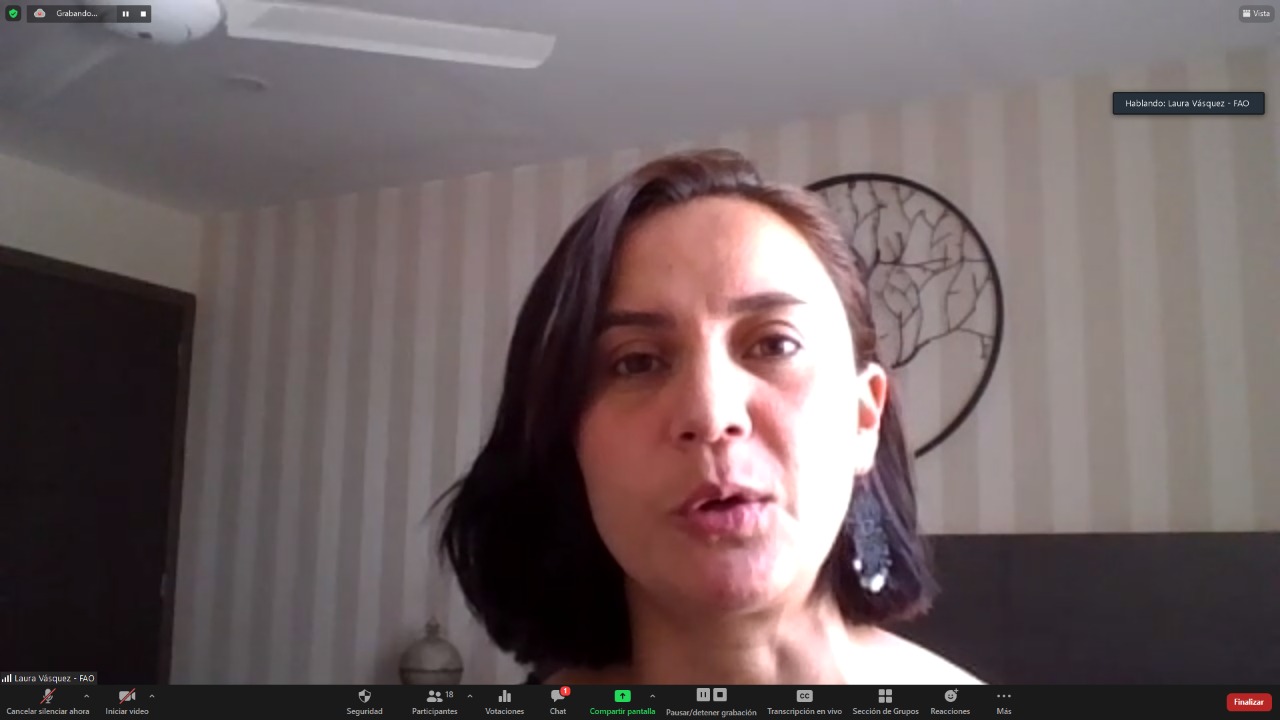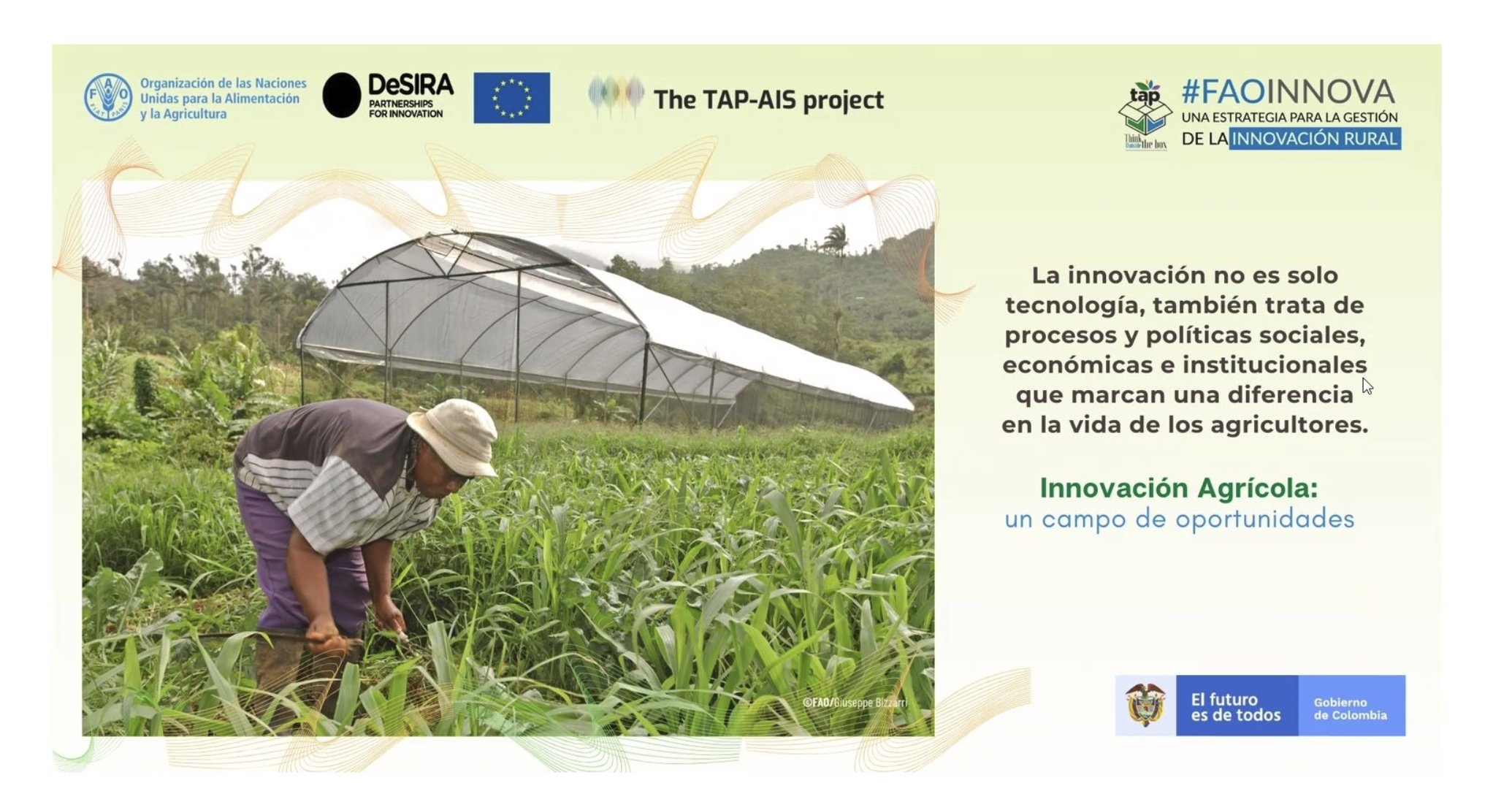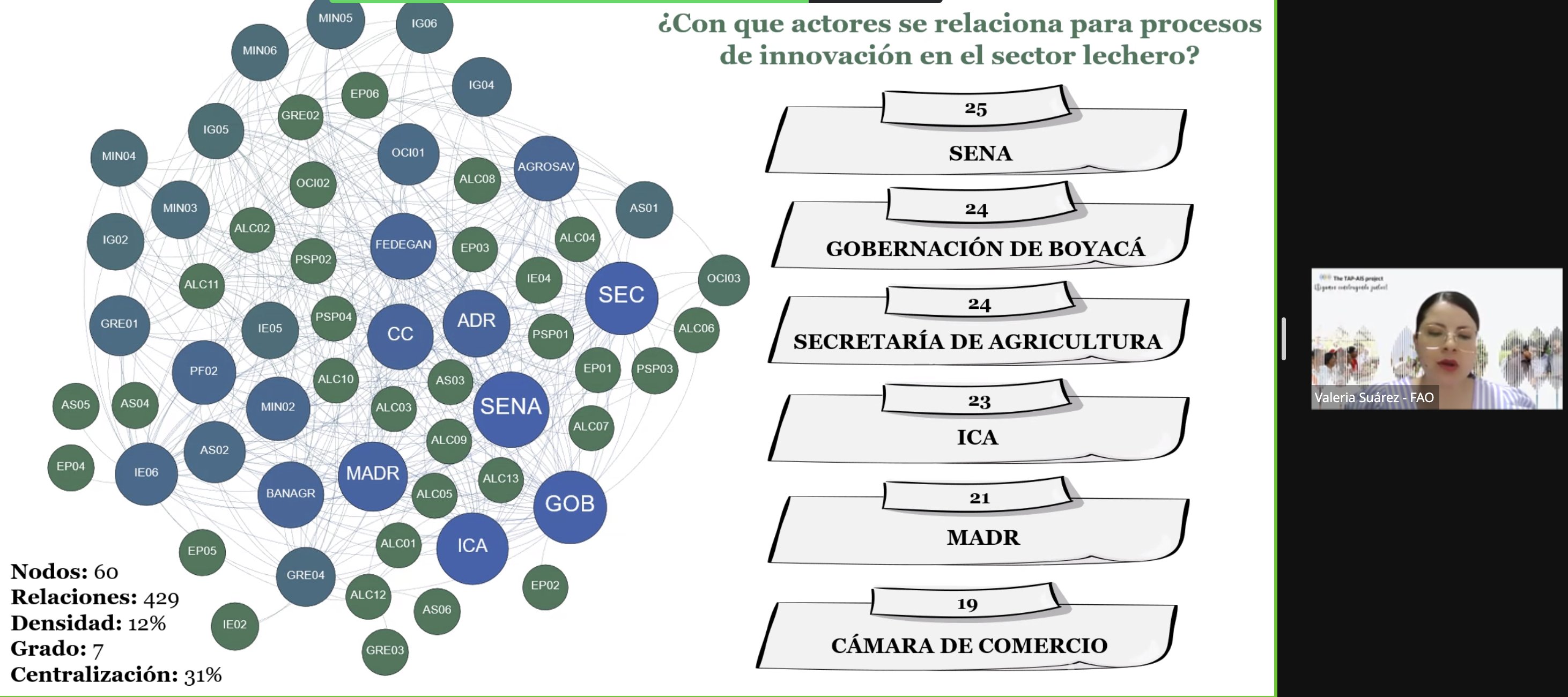TAP-AIS Colombia: fostering innovation in the honey value chain in the region Bajo Cauca Antioqueña and the dairy sector in Boyacá

During the months of February and March 2022, TAP-AIS Colombia organized two workshops to validate the results of a study initiated in 2021 which analyzed the Agricultural Innovation System in Colombia, focusing on the case of the honey value chain in the region Bajo Cauca Antioqueña and on the dairy sector in Boyacá.
The first workshop was held on 23 February 2022. About 25 participants joined virtually, including the producers’ association Campo Dulce, Agencia de Renovación del Territorio, Agrosavia, SENA, Univerisdad de Antioquia, Cámara de Comercio del Magdalena Medio y Nordeste Antioqueño and FAO, among others. The meeting had the objectives to present the results of the study and validate them with the main stakeholders. Among the main conclusions, the study highlights:
· the methodological approach can be replicated in other territories of the country;
· political and institutional support were limited since there is no effective relationship between institutions;
· the development of knowledge is conditioned by the relationships between entities.
The next step is to schedule territorial meetings with the actors most referred to in the structural analysis to define the capacity development plan.
Similarly, on 23 March, TAP-AIS Colombia organized a second webinar with the main stakeholders of the diary value chain in Boyaca’. This meeting was attended by representatives of the following institutions, among others: Agrosavia, Ministerio de Agricultura y Desarrollo Rural, SENA, Asociación de Ganaderos de Chinavita, MADR, Universidad Nacional de Colombia, Coopseragro, COOLACTEOSBONZA and FAO.
The meeting concluded that it is essential to have a long-term vision to support the dairy sector in the territory; the usefulness of the analytical framework that involves the territory system, functions, structure and capacities was evidenced. The catalysts of this territorial innovation system must be considered, such as SENA, Fedegan and the Secretary of Agriculture. The self-assessment of the institutional actors made it possible to identify some key actors to work with.
Also for this case, the next step is to organize meetings with the key actors to define the capacity development plan.
For more information about the project, see https://www.fao.org/in-action/tap-ais/en/.



